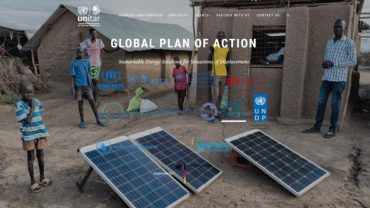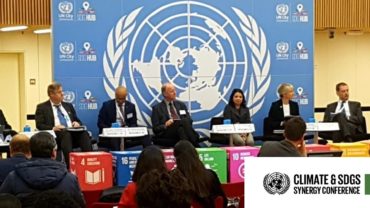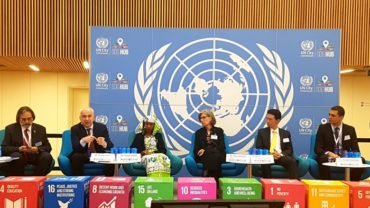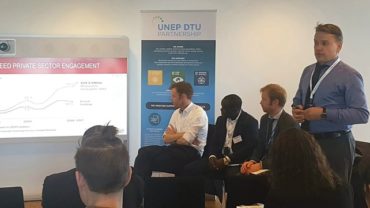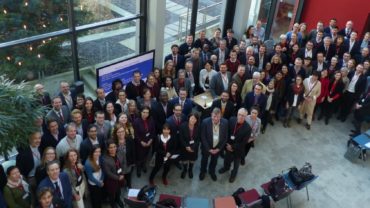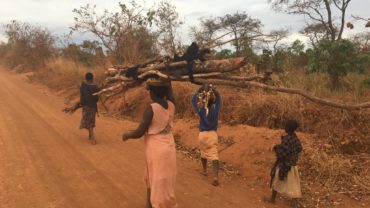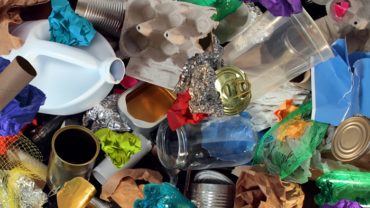Over 130 million people are in need of humanitarian assistance due to conflict, natural disasters, and other complex global challenges. For many of these people, access to sustainable fuel and energy is critical for survival, and how they access it affects their health, livelihoods, safety, and well-being.
With these issues in mind UNEP Copenhagen Climate Centre organised a side event on sustainable energy for displaced populations, during the Climate and SDGs Synergies Conference held in UN-City in Copenhagen 1-3 of April.
Featuring a panel of experts from UN organisations and NGOs implementing solutions on the ground, the event provided an overview of the energy situation in humanitarian operations. This included examples on how investment and partnerships with the private can help improve livelihoods and trigger wider development and environmental co-benefits.
A big need for clean energy
There are two sides of energy use in situations of displacement: at the institutional and household level. For both sides the situation is often unsustainable, whether it is firewood or charcoal for cooking meals and heating shelters or diesel generators to power humanitarian operations.
Christian Friis Bach, Secretary General of the Danish Refugee Council started the event by stating the pressing fact: “There is a lot of need for energy” in humanitarian settings.
“We need new innovative financing models, private sector involvement and partnerships that can create value and de-risk investments in energy,” he continued, calling for new model for humanitarian work that could facilitate private sector involvement and partnerships.
A global plan of action
Lack of access to safe and sustainable energy exposes displaced women and girls to heightened risks of sexual and gender-based violence as they travel long distances to collect firewood and navigate poorly lit communal spaces.
To improve the situation, 13 international organizations and other partners with the support of the Federal Foreign Office of Germany, Norway and the IKEA Foundation have launched a global Plan of Action for Sustainable Energy Solutions in Situations of Displacement (GPA) in July 2018. UNEP Copenhagen Climate Centre is part of this framework, which outlines concrete actions to accelerate progress towards the vision of clean energy production and consumption in situations of displacement.
Thomas Fohgrub head of the Coordination Unit for the GPA, based in UNITAR in Geneva, participated in the event to elaborate on the action plan, which was launched in July 2018 and its purpose to link humanitarian and development aid while working with sustainable energy.
But changing the way energy is supplied and used in situations of displacement and fostering new models and partnerships requires new knowledge, he pointed out:
“There are big needs for capacity building, which is why we are launching new webinars throughout 2019, each six weeks”
A need to think long term about cooking
Current energy practices in situations of displacement are often insufficient, inefficient, unsafe for users and harmful to the surrounding environment. Moreover, institutional humanitarian operations such as water pumping, community lighting, and health clinics rely heavily on unsustainable fossil fuels, costing 1.2bn USD annually.
Emmanuel Michael Biririza, Coordinator for Energy for UNHCR in Tanzania, is working with UNEP Copenhagen Climate Centre to implement a market creation plan for non-woodfuel technology in and around the biggest refugee camp in Tanzania. For him there is no question as two which of the two sides of energy use is the most important:
“The bigger issue is cooking. This is a much bigger problem. The use of firewood causes massive deforestation and conflicts with host community, besides the health problems from cooking over open fire.”
He also addressed the resistance to the notion of creating long-term sustainable solutions in a humanitarian setting, as not in line with reality in many contexts.
“There is a need to address the notion of refugees being short term. In one camp in Tanzania, we have 150.000 people, who have been here for more than 20 years,” he said.
The linkages of SDGs
The event ended with a short film, describing the disastrous effects of climate change, heavy rainfalls and deforestation in Rwanda, and how a more sustainable cooking method, in this case a clean cook stove for wood pellets, can not only help reduce deforestation and emissions, but also dramatically reduce adverse health impacts of cooking over open fire.
Jakob Øster, Livelihoods Officer, UNHCR Copenhagen, has been part of introducing these cook stoves in a partnership with a local company in a humanitarian setting in Rwanda.
For UNHCR the partnership in Rwanda has made it possible to improve the lives of displaced people on several levels, and Jakob Øster’s message was clear.
“We are tackling the challenges of SDG 7 by looking at it through SDG 17. Creating sustainable energy alternatives through partnerships.”
